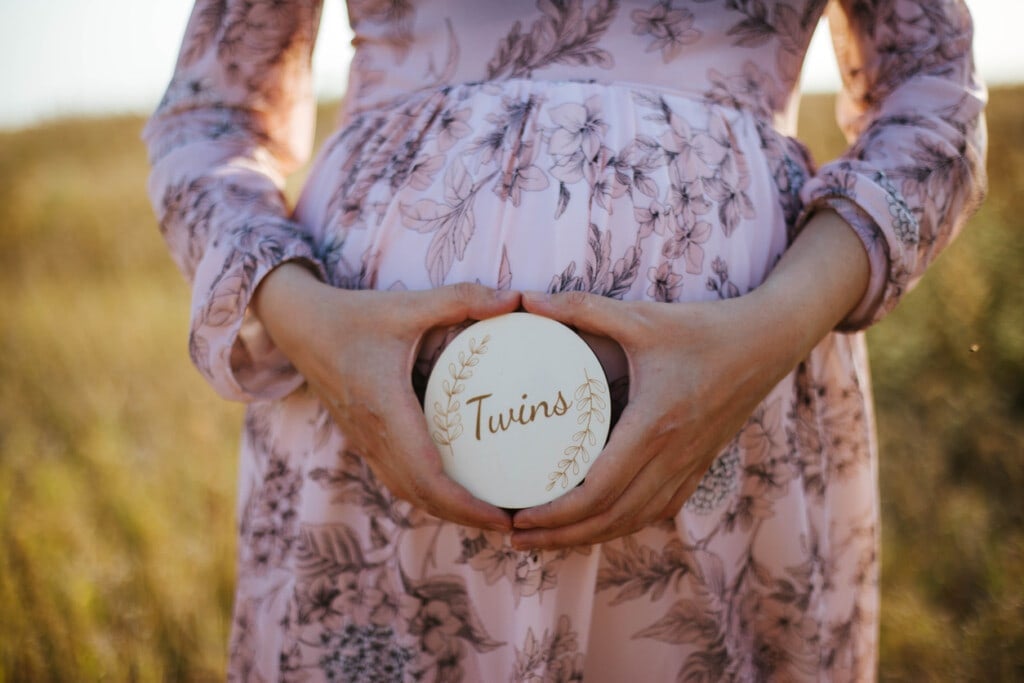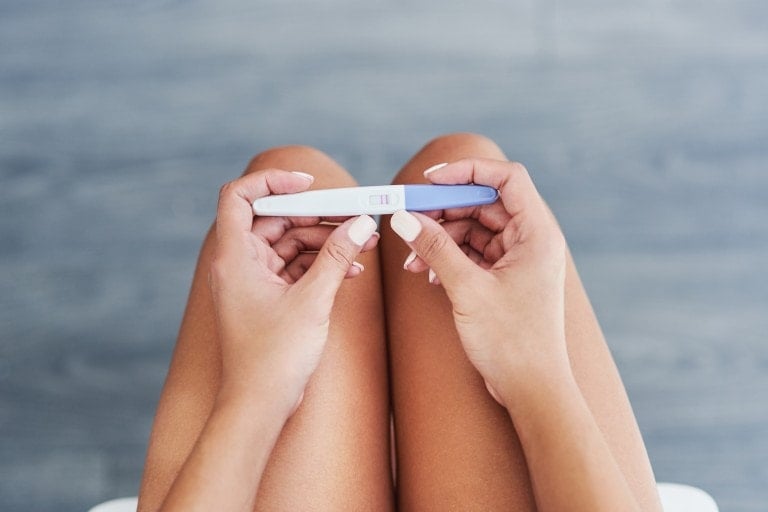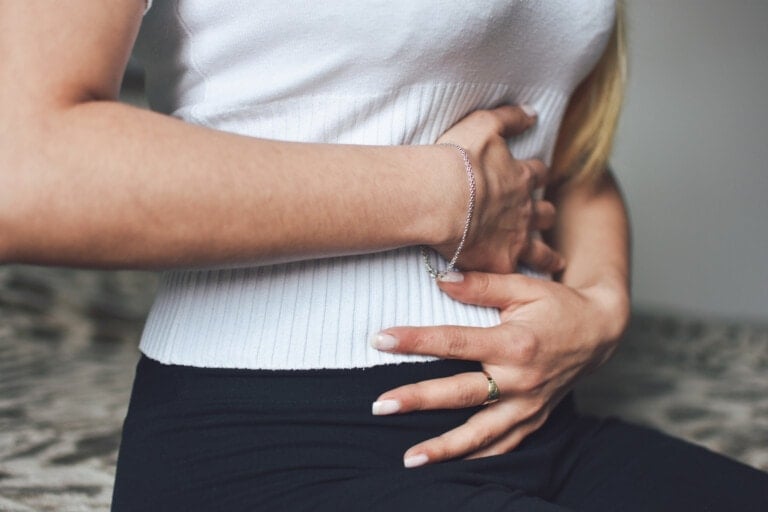Although twin pregnancies are higher risk than singletons, there are undeniable perks to having twins. Some moms see twins as an opportunity to get two babies from just one pregnancy, while others may crave twins for the special lifelong bond they may form from sharing the womb.
Regardless of your reasons for having twins, there is much to know about conceiving them. Of course, whether you get pregnant with twins is up to fate, but some factors might increase your odds. So how are twins conceived, how common are they, and how can you increase your chances of getting pregnant with twins both naturally and with medical treatments? Here’s what you need to know.
Types of Twins and How It Works
Essentially there are two types of twins. You have probably heard the terms “identical” and “fraternal.” Fraternal twins are also called “dizygotic” twins, which originate from two separate eggs, sperm, and embryos. This means a woman must ovulate two eggs, and they must both get fertilized in one cycle. Genetically, the two babies that result from fraternal twins can be as similar or different as any other siblings from two separate pregnancies. Fraternal twins share about half their DNA, like other sets of siblings, and they can be same-sex or opposite-sex.1
Identical or “monozygotic” twins came from one zygote or fertilized egg. This already-fertilized egg, or embryo, divides into two babies in the early stages of cell division and development. We know much less about the mechanics of identical twins, but they have identical DNA and are always the same sex.1
How Common are Twins?
Twinning rates have fluctuated throughout history and vary by region, country, and racial and ethnic groups.
The rate of identical twins is relatively constant at about four sets of twins per 1,000 pregnancies throughout history and demographics. The changes in twin popularity depend primarily on fluctuations in the prevalence of fraternal twins.1
In the United States, twin births had been on a steady incline from 1980 until their peak in 2014, then began to decline. In 2018, 32.6 of every 1,000 babies born was a twin. This includes both identical and fraternal twins.2
How to Conceive Twins Naturally
The current understanding of identical twins is that they occur randomly. There have been no identified maternal, genetic, or environmental contributing factors in conceiving identical twins. If you hope to conceive identical twins, the best you can do is cross your fingers and pray!1
There are, however, several factors that may increase a woman’s chances of conceiving fraternal twins. Some of these you can control, while others are unchangeable.
Increasing Maternal Age
A woman is born with all the eggs she will ever have, but they are immature. At puberty, these eggs begin to ripen in batches each cycle, though typically only one reaches full maturity, is ovulated, and can be fertilized.
Follicle-stimulating hormone, or FSH, recruits a new group of eggs to mature each cycle. As a woman ages, her reserve of eggs decreases because she loses batches each month. As the egg reserve decreases, you may need higher levels of FSH to recruit new eggs for development. Higher FSH levels increase the chances that more than one egg will reach full maturity and be ovulated in one cycle. This may be how older moms are more likely than younger moms to have twins.1
Increased Parity
Parity refers to the number of babies born to a mother. Mothers who already have babies are more likely to have twins. While moms with more children are likelier to be older than first-time moms, we can correlate increased parity with twin pregnancies, even independent of maternal age. It is not understood why having previous pregnancies and births increases chances for twins, but what this means is if you keep having babies, you are more likely to have twins eventually!1
Genetics
The most recent studies suggest a woman can inherit a tendency toward fraternal twins from either of her parents. However, you can only choose your partner, not your parents, and your male partner’s family history of twins does not impact your likelihood of conceiving twins.1
Sperm Quality
A woman can ovulate two eggs, but both must be fertilized to conceive fraternal twins. Eggs are more likely to be fertilized if the quality of a man’s sperm is high.
If you are hoping to conceive twins (or conceive at all), optimizing the sperm health of your partner is a top priority. Interventions such as maintaining a healthy weight, diet, and exercise routine, managing stress, limiting alcohol and other drugs, and keeping the testicles cool can all improve male fertility.3
Maternal Size
Taller moms and moms with a body mass index of over 30 have a higher likelihood of getting pregnant with twins.1
Conceive During Summer or Fall
Some studies have shown an increased chance of conceiving twins during the summer and fall seasons. Food and nutrition availability may contribute to this trend and the effect of daylight hours on hormone concentrations.1
Folic Acid Consumption
Some studies have shown an association between folic acid consumption around the time of conception with getting pregnant with twins. Perhaps this is due to a higher likelihood of implantation of both fertilized eggs if a mother’s folic acid concentrations are adequate.1
Recent Discontinuation of Hormonal Birth Control
After a woman stops taking birth control pills or another form of hormonal birth control, her body takes time to re-regulate her hormones. This may cause a temporary increase in FSH and raise her chances of conceiving twins.1
Dairy Consumption
One study shows that women who ate dairy compared with women who did not were five times more likely to conceive twins. This may be due to a hormone released from an animal’s liver that makes the ovaries more sensitive to FSH.4
Breastfeeding
Women who are breastfeeding when they conceive a new pregnancy are also nine times more likely to become pregnant with twins.4
How to Conceive Twins with Medical Treatment
While all these factors can increase your odds of getting pregnant with twins, there are no guarantees. There are also ways to conceive twins with medications and other medical interventions.
Ovulation Induction
Women who do not ovulate regularly on their own often take fertility drugs to encourage their bodies to mature and release an egg for fertilization. Some of these medications, such as clomiphene citrate or follicle-stimulating hormone, can cause a woman to ovulate multiple eggs in one cycle, increasing her risk for a multiples pregnancy.
Clomiphene citrate increases a woman’s chance of conceiving twins from less than 1 percent to 5-8 percent.5,6
Doctors will combine ovulation induction medications with timed intercourse, telling you when to have sex to optimize your chances of conception. Sometimes ovulation induction medications are combined with intrauterine insemination (IUI) when sperm is injected directly into a woman’s uterus at the time of her ovulation.6
If you take ovulation induction medications, you will likely be closely monitored for the number of mature follicles in your ovaries before ovulation. If you appear to ovulate more than two eggs, your doctor may instruct you to abstain from intercourse, or your insemination might be canceled for that cycle. You do not want to risk conceiving higher-order multiples such as quadruplets because of the risks it places on a pregnancy.
In Vitro Fertilization
In vitro fertilization (IVF) refers to harvesting a woman’s eggs and fertilizing them with sperm in a laboratory. If fertilization occurs, a doctor can transfer the resulting embryos into the uterus in hopes of implanting and beginning a pregnancy. If they transfer multiple embryos and both implant, fraternal twins will occur.7
Even when the doctor transfers only one embryo, IVF pregnancies are more likely to result in twins because the embryos are more likely to divide and cause identical twins. However, there is no clear understanding or scientific consensus as to why.8
You probably will not go through fertility treatments to have twins, but it could be a nice bonus if you have always wanted to have two babies at once. If you are not eligible for ovulation induction, IUI, or IVF, you may have to rely on the old-fashioned way of getting pregnant, whether with twins or just one baby.
While many factors that influence getting pregnant with twins are out of your control, some interventions are relatively harmless to try. Always talk to your doctor before changing your diet, medications, or supplements, but upping your dairy intake and starting a folic acid supplement could be good places to start. And even if you do not end up pregnant with twins, these changes could still help you conceive a singleton baby, which you would likely still be thrilled about.































